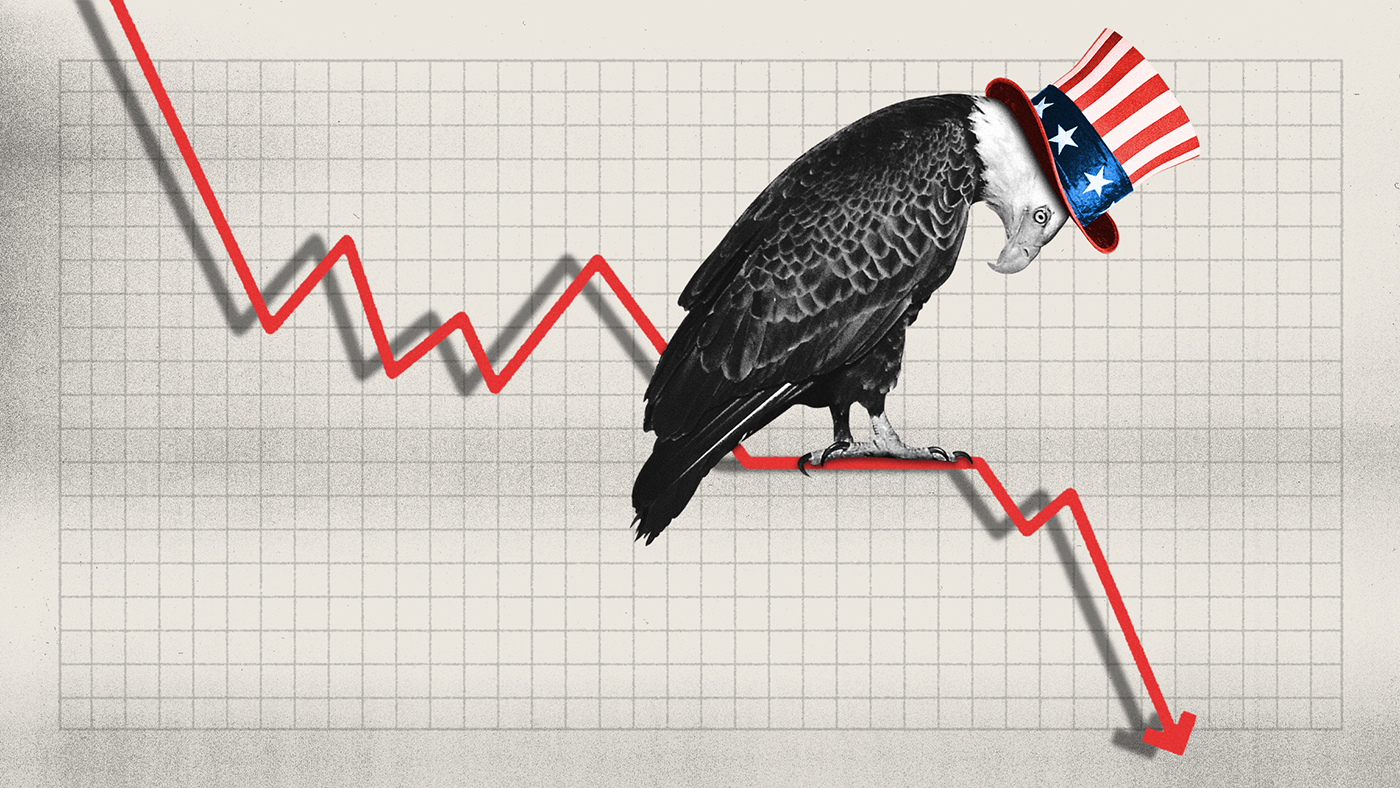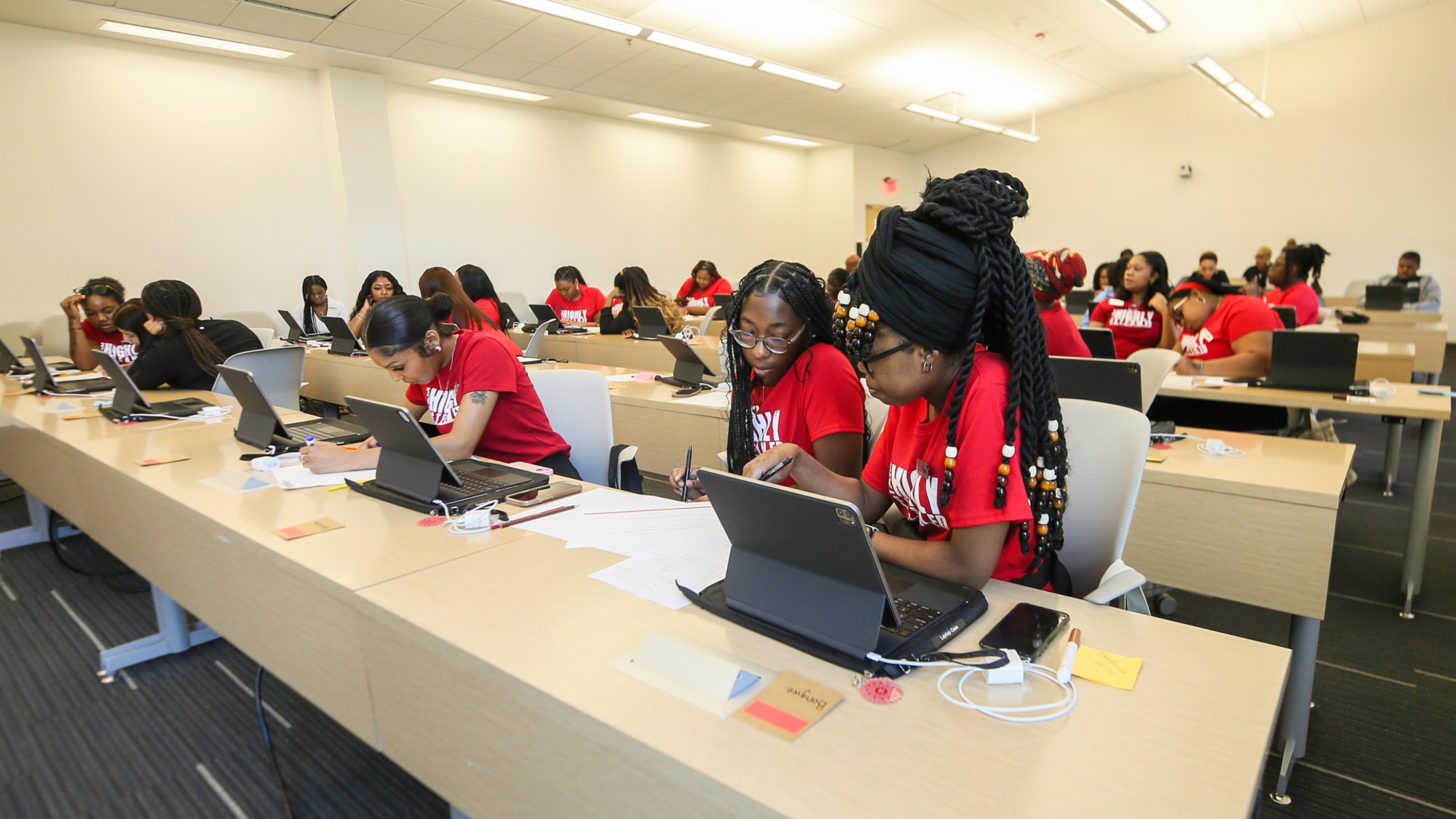What a patriotism poll says about America's changing values
Is there really a major drop in U.S. patriotism? Does it matter?


A free daily email with the biggest news stories of the day – and the best features from TheWeek.com
You are now subscribed
Your newsletter sign-up was successful
On March 27, The Wall Street Journal and nonpartisan research organization NORC released the results of a now-viral poll, which found that "priorities that helped define the national character for generations are receding in importance to Americans," the Journal wrote in its write-up.
Among the survey's more jarring revelations: A stark drop in the share of respondents who said patriotism was very important to them, which fell from 70 percent in 1998 and 61 percent in 2019 to just 38 percent in 2023; a less-dramatic but still-noticeable fall in the percentage of respondents who identified religion as "very important" to them, which dropped from 62 percent in 1998 and 48 percent in 2019 to 39 percent in 2023; and a similar plummet — from 59, then 43, then 30 percent — in the share of those that said the same of having children. Notably, those surveyed placed an increased emphasis on money, which 43 percent of respondents ranked as being very important, versus 31 percent that said the same in 1998 and 41 percent in 2019. Mused pollster Bill McInturff: "[P]erhaps the toll of our political division, COVID, and the lowest economic confidence in decades is having a startling effect on our core values."
So how should we be interpreting these results? Is patriotism actually waning? Or is this purported ideological rot just a mirage?
The Week
Escape your echo chamber. Get the facts behind the news, plus analysis from multiple perspectives.

Sign up for The Week's Free Newsletters
From our morning news briefing to a weekly Good News Newsletter, get the best of The Week delivered directly to your inbox.
From our morning news briefing to a weekly Good News Newsletter, get the best of The Week delivered directly to your inbox.
Yes, there's a decline
While insisting that the Journal's charts on the poll are a bit "misleading," The Washington Post's Aaron Blake is nonetheless of the mind that the drop in patriotism in particular "is clearly a byproduct of polarization." Indeed, while it's worth noting that Americans' answers to these kinds of surveys "tend to be responsive to real-world events," (it's at this point that Blake highlights how the Journal found patriotism to be similarly waning around the time of the Vietnam War and Watergate), the findings here "shouldn't be too surprising," especially given what we know about the divisive Trump years and their continually complicating legacy.
To that end, the poll's results are "consistent with a broader decline in trust for institutions over the last several decades," a void that Trump and his ideologies have successfully stepped in to fill, former CNN commentator Chris Cillizza wrote on his Substack, So What?. "In a world in which our traditional values are collapsing (or have collapsed)," it is Trump's "new way of looking at the world that many people have signed onto."
Further, "I also can't get that irked or disappointed by an American who feels less patriotism or has more mixed feelings about their country now compared to 2019," said National Review's Jim Geraghty, who noted that, when analyzing the numbers across all the poll's four categories — "very important," "somewhat important," "not that important" or "not important at all" — the plunge "appears much more modest." Still, however, "you can love your country and still feel disappointment, frustration or even anger with it, your country's leadership, and your fellow citizens."
Yes, there's a decline … but look at how the poll was conducted
But according to pollster Patrick Ruffini, the drop in the importance of patriotism between 2019 and 2023 could actually have more to do with how the data was collected than some sort of pervasive attitude shift. You see, "the March 2023 survey was collected via NORC's Amerispeak, an extremely high-quality online panel," while "data from previous waves," including that from 2019, "was collected via telephone survey." And though survey mode always plays a role in a poll's results, it especially matters when it comes to"the kinds of values questions that the Journal asked in its survey."
A free daily email with the biggest news stories of the day – and the best features from TheWeek.com
"If I'm speaking to another human being over the phone," Ruffini continued, "I am much more likely to answer in ways that make me look like an upstanding citizen, one who is patriotic and values community involvement." But "my answers to the same questions online will probably be more honest, since the format is impersonal and anonymous." With that in mind, the 2023 survey is probably more revealing regarding the country's true "state of patriotism," and the "data from previous waves" were likely "inflated by social desirability bias — and can't be trended with the current data to generate a neat-and-tidy viral chart."
Further, a similar analysis from Gallup in June 2022 found that, while patriotism has "been on the decline for quite some time," that "rate of decline did not quintuple in the last four years," as the Journal's misleading-plotted graph might have you believe. Per Gallup, 70 percent of adults said in 2019 that they were extremely or very proud to be an American; in 2022, that value fell just 5 percentage points, to 65 percent. There is "a clear reason for the strikingly different results" between the two analyses, Ruffini mused. "While the Journal changed its methods between its last two polls, Gallup has measured these things the same way of the years — through old-school telephone interviewing." (Separately, it is worth noting that, in 2022, the share of adults who told Gallup they were extremely proud to be American had fallen from 43 percent the year prior to 38 percent, similar to the recent value gleaned by the Journal and NORC.)
Brigid Kennedy worked at The Week from 2021 to 2023 as a staff writer, junior editor and then story editor, with an interest in U.S. politics, the economy and the music industry.
-
 Political cartoons for February 19
Political cartoons for February 19Cartoons Thursday’s political cartoons include a suspicious package, a piece of the cake, and more
-
 The Gallivant: style and charm steps from Camber Sands
The Gallivant: style and charm steps from Camber SandsThe Week Recommends Nestled behind the dunes, this luxury hotel is a great place to hunker down and get cosy
-
 The President’s Cake: ‘sweet tragedy’ about a little girl on a baking mission in Iraq
The President’s Cake: ‘sweet tragedy’ about a little girl on a baking mission in IraqThe Week Recommends Charming debut from Hasan Hadi is filled with ‘vivid characters’
-
 ‘The forces he united still shape the Democratic Party’
‘The forces he united still shape the Democratic Party’Instant Opinion Opinion, comment and editorials of the day
-
 ‘Those rights don’t exist to protect criminals’
‘Those rights don’t exist to protect criminals’Instant Opinion Opinion, comment and editorials of the day
-
 ‘The mark’s significance is psychological, if that’
‘The mark’s significance is psychological, if that’Instant Opinion Opinion, comment and editorials of the day
-
 ‘The West needs people’
‘The West needs people’Instant Opinion Opinion, comment and editorials of the day
-
 ‘The censorious effect is the same, even if deployed covertly’
‘The censorious effect is the same, even if deployed covertly’Instant Opinion Opinion, comment and editorials of the day
-
 Vietnam’s ‘balancing act’ with the US, China and Europe
Vietnam’s ‘balancing act’ with the US, China and EuropeIn the Spotlight Despite decades of ‘steadily improving relations’, Hanoi is still ‘deeply suspicious’ of the US as it tries to ‘diversify’ its options
-
 ‘The sport is still run on a shoestring’
‘The sport is still run on a shoestring’Instant Opinion Opinion, comment and editorials of the day
-
 ‘We know how to make our educational system world-class again’
‘We know how to make our educational system world-class again’Instant Opinion Opinion, comment and editorials of the day
